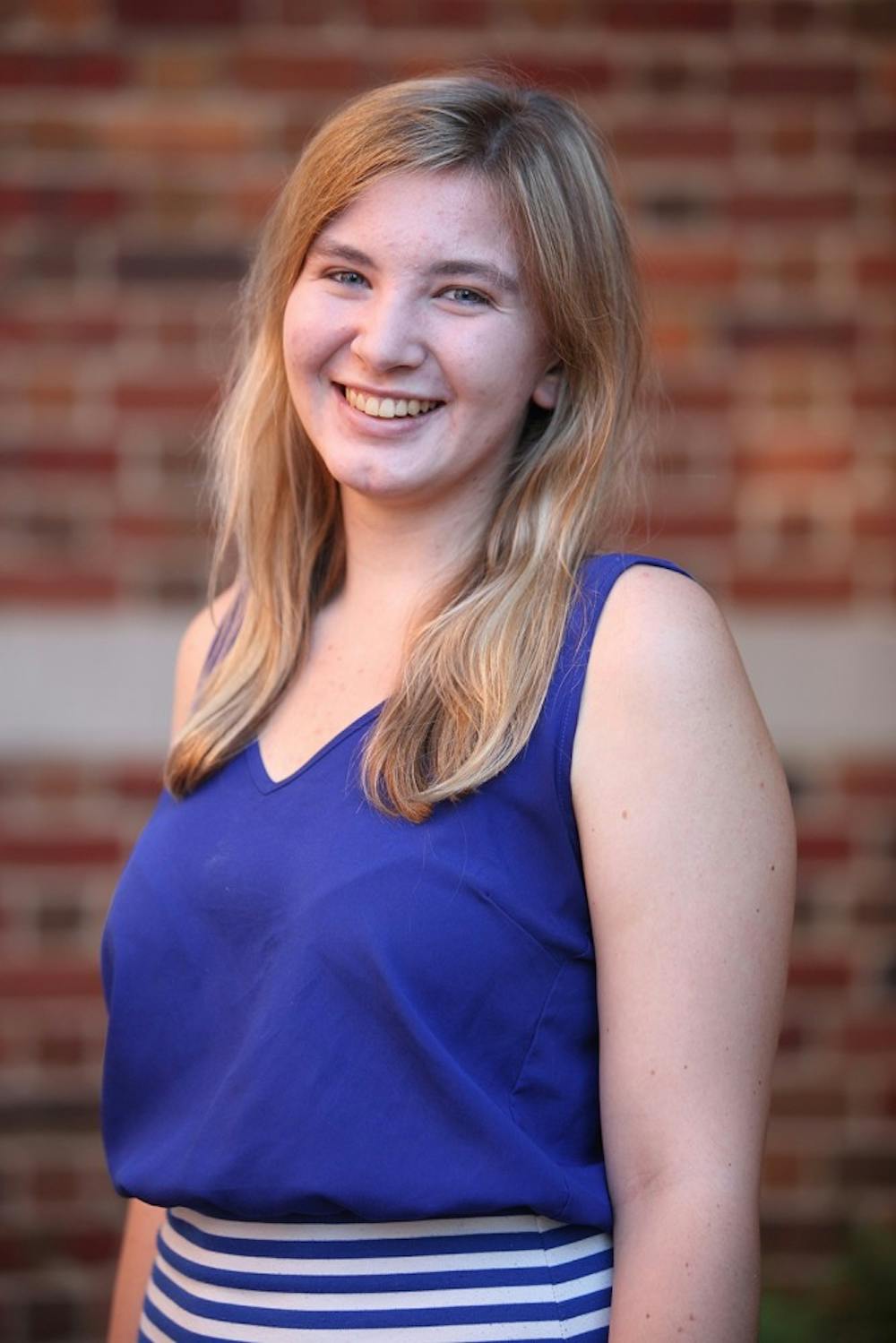All my life, I have been the quiet girl that stands at the side of a crowded room. All my life, I have been the awkward girl who doesn’t know what to say or how to say it or when to say it. It doesn't matter if the setting is a lecture hall or a pounding pre-game — it’s just the kind of person that I am. In any new social situation, my voice always wavers — slightly, an unnoticeable amount if you weren’t looking for it, but it’s a blaring flag for me. It’s a reminder that I am and always will be an introvert.
I do not mean to insinuate that all introverts are similar to me. I do not mean to insinuate that all introverts have difficulty in social settings or regret this inclination. In fact, in my eyes, there’s a firm distinction between the “happy introvert” and the “anxious introvert.” The “happy introvert” is comfortable with herself, knows her personality type and embraces it full-on. The “anxious introvert” is hyper-aware of her social shortcomings and fixates on every social task with uncompromised worry and doom. I know these archetypes intimately, because, for the last 21 years, I have fluctuated between both.
In my younger years, I was plagued by this “character flaw” — at least, that’s how I perceived it. I was an “anxious introvert.” In elementary school, it took all my effort to speak up when the teacher called my name. I had a close-knit friend group and never strayed too far from those four or five people. On days that were particularly overwhelming, I would lift the hood of my sweatshirt and sit silently at my desk.
Socratic seminars were the worst for me — while there is clear value in the teaching technique, it was an “anxious introvert’s” worst nightmare. Those student-facilitated discussions were chaotic for someone like me — my peers talking over one another, competing to have the most compelling point. All of them were overzealous and eager to prove themselves, while my blood ran cold from dread and terror. My voice shook. My stomach ached. At this point, the class had become more about the inescapable anxiety, not the material. I would spend 20, 30 or 40 minutes rehearsing a sentence in my mind, over and over, and attempting to gain the courage to speak. Most of the time, the anxiety would be too much — I would give up and accept a score of zero from my teacher. Does that seem fair?
At these low points in my childhood, it was impossible not to be envious of my extroverted counterparts.
By high school, I had developed tricks to handle this introverted anxiety. I would speak first during a group discussion or state something vague or ask a peer for clarification on his or her point. The tricks were small, but they made the difference to me. With those discoveries, I began to gain momentum and confidence. I began to transition from an “anxious introvert” to a “happy introvert.”
This transition is a slow, incremental fight. I don’t think most people understand the true gravity of that undertaking. It is a change that requires people to compromise who they are. It’s a change that requires people to push themselves past their comfort zone, constantly. Learning to speak up was a tumultuous growing process that fought me every step of the way.
While every person should be aware of this silent struggle, it is imperative that professors understand and act with kindness and consideration. In a class last semester, I was docked a letter grade. When I emailed the professor, his response was this: “While you largely led the discussions in small groups, you irregularly participated in classroom discussions.” It didn’t matter that each of my essays received an A — my inability to “regularly” engage in this social component was costly and left a bitter taste in my mouth.
Again, I ask — is this fair?
Professors should take this into account. If they witness a student excelling with the material and giving a good faith effort amidst the social component of the class, docking points is cruel. A letter grade is absurd. As someone that has struggled with this for years, it’s hard not to begin resenting yourself and your hushed disposition.
Some are lucky enough to have a natural inclination towards conversation and sociality. Some thrive in social settings, unmasking a personality filled with charm, charisma and amicability. No doubt, these people take this for granted. These people don’t understand that the world works in their favor — that they were given an advantage in life simply by chance.
While I have fine-tuned my social skills, my anxious introverted side still shows. In social situations, I always let the others take the reins in the conversation. I’m still working on myself. Sometimes, I still regress to an “anxious introvert,” but I hope to reach a point where I am completely and unconditionally content with who I am.







